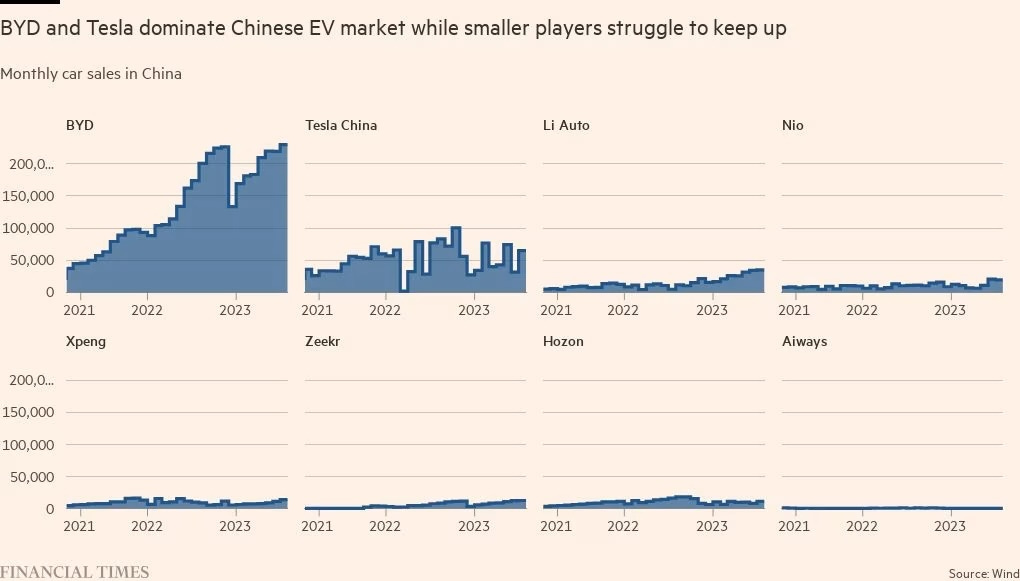(#45) The magnificent 7: Apple, Microsoft, Nvidia, Amazon, Alphabet, Meta and Tesla - part III
AI will be humanlike but not human, will disrupt work faster than we thought and will require less data to become as smart as humans.
This week we end the AI saga with the Magnificent 7: Alphabet/Google and Tesla (part III)
Onto the update:
Strategy
Alphabet/Google
Google is making strides in the world of artificial intelligence (AI) and large language models (LLMs). Basically, they invented the transformer, which lies at the base of LLMs. Also, a couple of years ago, they introduced their Language Model for Dialogue Applications (LaMDA), marking a notable advancement in conversational AI. Recently, the tech giant revealed their newest project named Bard, a conversational AI tool powered by LaMDA. The company plans to trial Bard with a select group of testers before releasing it to the broader public. This innovative tool is designed to answer a wide array of queries, ranging from space telescope details to insights about top football players.
Additionally, Google boasts superior image generation skills, surpassing Dall-E and others. Yet, these remain as assertions since no tangible products have surfaced.
Furthermore, Google's legacy in AI-driven Search enhancements is evident through its groundbreaking models like BERT and the more advanced MUM. Sources indicate that Google is on the brink of launching new AI features in Search to simplify and condense complex information, enhancing user experience. In addition to their own products, Google seems keen on fostering a broader AI ecosystem. They're set to introduce developers to their Generative Language API, suggesting an ambitious plan to cultivate a range of AI-driven tools and applications. This initiative is supported by collaborations with notable tech entities such as Cohere, C3.ai, and the newly-announced partnership with Anthropic.
In the realm of search, generative AI could signify a potential disruption rather than a mere enhancement. Initially, disruptive innovations might not match existing standards, leading to them being overlooked by incumbents convinced of their product's superiority. However, the danger lies in the disruptive tool's evolution, especially when the existing product becomes cumbersome, paralleling the direction Google Search seems to be heading.
Tesla
Morgan Stanley (MS) anticipates that Tesla's value could surge by $500 billion due to its Dojo supercomputer. MS believes that Dojo could unlock diverse revenue opportunities, especially through the broader implementation of robotaxis and software services. The potential of Dojo for Tesla has been likened to the transformative impact of Amazon Web Services on Amazon's profitability. Dojo, which Tesla has been developing for about five years, is primarily aimed at training AI systems for intricate tasks, including improving Tesla’s Autopilot and spearheading its "Full Self-Driving" initiatives. The analysts project that Dojo could tap into markets beyond just car sales. On this news, the Tesla’s market capitalization grew my more than the size of BMW’s total market capitalization. Crazy!
Additionally, Tesla is working on a general-purpose humanoid robot for mundane or unsafe tasks and is hiring specialists for this purpose. They're also focusing on AI chips for their vehicles, refining neural networks for better vehicular perception and control, and creating tools for effective evaluation of these systems.
Netflix’s plan to increase prices
Netflix has increased the prices in the US to its ad-free plans but kept the same price for the ad tier. (given the inflation, the ad-tier option got cheaper).
So, yes - the ad tier can go down to zero, as argued here. WSJ
NVIDIA goes after Intel with its own chips
In collaboration with ARM, NVIDIA wants to give the final blow to Intel after the one in data servers. Why? Part of the current growth will be offset by the other companies developing their own AI chips (ie. from Meta to Amazon to Microsoft) and currently, the PC market is still suffering due to Intel’s limitations. We might assist to last decade of what we know Intel was. LINK
China launches investigation on Foxconn, Apple’s main manufacturer.
So, why would you do that to the most important company that operates in China? Unless you want to send a message. Apple will only accelerate the transition to India, Vietnam, and Indonesia. For China, this is only a lose-lose situation. Except de German companies, nobody else is willing to invest in China. Foxconn, Germany
Deglobalization
I was reluctant to put this story here, but I consider it crucially. The deglobalization started with Obama and now is racing to its peak with Biden’s policies. Peter Zeihan makes a summary in 10 minutes, Give it a try! Peter is an OG on geopolitics. LINK
Artificial intelligence
Apple’s investments in Generative AI
Ming-Chi Kuo, the best analyst on Apple, estimates that the company will pay close to $5 bn in 2024 only for chips (ie. NVIDIA H100 chips), but needs additional money to labor, infrastructure, etc. Even if succeeds in doing that, Kuo says that Apple is late to the game. So, will they continue the AI acquisition frenzy? Ming-Chi Kuo, Acquisitions
Moody’s started letting machines help with financial analysis
Why? Because: efficiency, accuracy and consistency, scalability, enhanced insights, innovative product and service development, continuous learning & improvement, and, of course, costs. LINK
Conclusions from the interview of OpenAI’s CEO Sam Altman and CTO Mira Murati
1/ AI will be humanlike but not human
2/ AI will disrupt work faster than we thought
3/ AI will require less data to become as smart as humans. LINK
AI identified people with Type 2 diabetes just by how they spoke. LINK
Business Schools grapple with how to teach Artificial Intelligence to MBA students. LINK
[New section] Things Happen
Drawing inspiration from Matt Levine (Bloomberg), this segment is dedicated to presenting a curated list of informative links. These aren't just any links, though. Each one holds the potential to unravel a more profound narrative, laying the groundwork for an in-depth analysis. While these stories may initially seem disparate or unrelated, they represent the pulsating undercurrents of our times. I encourage you, dear readers, to dive into these links, form your perspectives, and stay tuned as some of these might soon evolve into comprehensive discussions in our subsequent newsletters.
South Korea’s Naver wins Saudi deal to build digital replicas of Mecca. LINK
South Korean Christians turn to AI for…praying. In South Korea, Christianity is the biggest religion. LINK
Porsche Design Head says Chinese EVs spur edgier car concepts. LINK
Google to manufacture Pixel smartphones in India next year. LINK
How luxury brands and TikTok could save the Royal Opera House. LINK
Multiple accounts coming to WhatsApp. LINK
Data
184 Tech CEO Salaries at the IPO. LINK
The Chinese electric vehicle market is heading to consolidation. LINK
Who owns the most satellites? Elon. LINK
Nokia plans to cut 14,000 jobs. LINK
IT Spending to Grow 8% in 2024. LINK
Outside interest
Nearly 70% of prospective buyers would buy a haunted house if it checked all their boxes. LINK
There is a map of the less circulated roads in the US. LINK
10 Takeaways from the Pentagon's 2023 China Report. LINK
Study: “When given the choice to learn how their actions will affect someone else, 40% of people will choose ignorance, often in order to have an excuse to act selfishly, according to research published by the American Psychological Association.” LINK
A growing number of people are organizing their love lives via spreadsheets. LINK
Interesting newsletters 💡
The Weekly Blend (by Laurentiu Vana) - Financial education, stock market, macroeconomics & more.
Product evolution (by Bulent Duagi) - Here you will find a curated mix of resources that your Product team can use to level up.
Sharing is caring
☕️ Did you enjoy the newsletter? Buy me a coffee ✅










